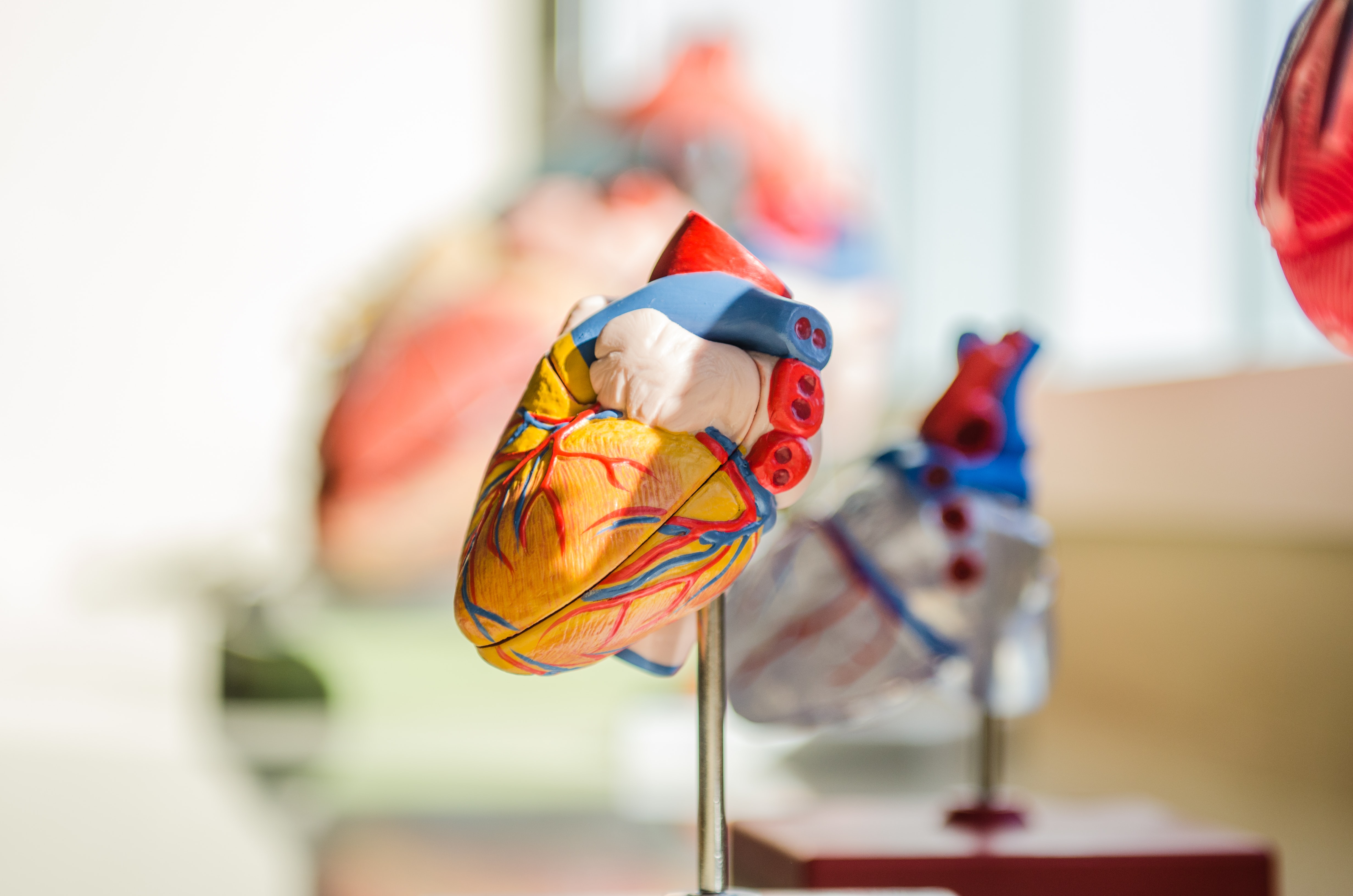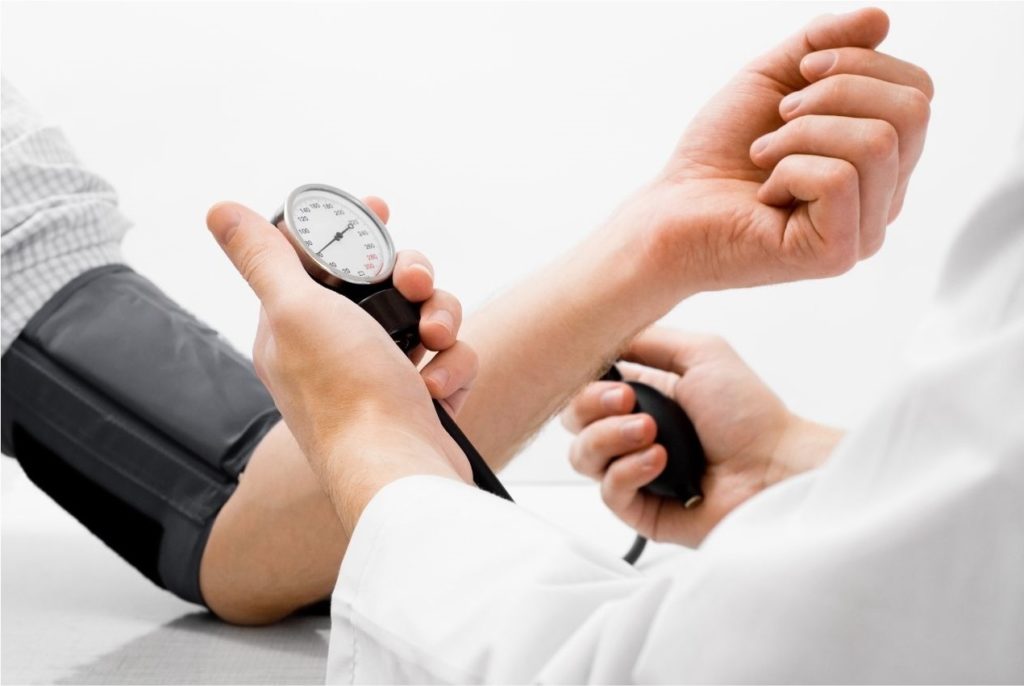
Dr Neil Chapman
Specialist expertise: Cardiology, Cardiovascular Disease, Hypertension, Heart Health.
Your blood pressure (BP) is the pressure in your arteries (the blood vessels leading away from the heart) as blood is pumped around the body. It consists of two numbers, the systolic pressure (the peak pressure generated by the heart as it pumps) and the diastolic pressure (the pressure that remains in the arteries as the heart relaxes).

Your blood pressure (BP) is the pressure in your arteries (the blood vessels leading away from the heart) as blood is pumped around the body. It consists of two numbers, the systolic pressure (the peak pressure generated by the heart as it pumps) and the diastolic pressure (the pressure that remains in the arteries as the heart relaxes).
Blood pressure is measured in millimetres of mercury (mmHg) and recorded as one number ‘over’ the other; for example 140/80 mmHg (stated as ‘140 over 80’). Blood pressure is now usually measured with automated monitors, but the units come from the time (until very recently) when it was typically measured in comparison to the pressure generated by the height of a column of mercury in a tube.

High blood pressure, or hypertension, is defined as a BP of 140/90 mmHg or more (or 130/80 mmHg or more in the USA), although ideally blood pressure should be lower than this (optimal BP is less than 120/80 mmHg).
High blood pressure is common, affecting almost 30% of the adult population.1 Blood pressure typically rises as you get older and at least 50% of the UK population aged over 60 years have hypertension: however, it is not uncommon even in younger people, for example, affecting 7% of those aged 25-34 years.
Having high blood pressure means that the heart has to work harder to pump blood around the body and increases wear and tear on blood vessels. As a result, higher than ideal BP increases the likelihood of suffering from major illnesses such as heart attacks, strokes, kidney failure and heart failure and is the biggest single contributing factor to death and serious illness (mainly due to heart attacks and strokes) worldwide.
However, the good news is that treating and controlling high blood pressure significantly reduces these risks.
In most people, the causes of high blood pressure are complex. As well as increasing age, genetic factors (such as having a family history of hypertension) and ethnicity (particularly being of Black African and Black Caribbean origin) are associated with increased risk of high BP.
Lifestyle factors are also important. These include:
Relatively rarely a specific cause of high blood pressure can be identified, so-called ‘secondary hypertension’. Overall, these causes probably account for fewer than 10% of cases, but they are relatively more frequent among younger people with high blood pressure. Such causes include certain rare genetic causes, kidney disease, an excess of certain hormones that usually regulate BP (such as aldosterone, adrenaline or noradrenaline), narrowing of blood vessels (such as the aorta or the arteries to the kidney) and obstructive sleep apnoea (repeated interruptions to breathing while asleep).
While relatively infrequent, identification of these causes is important as they may require specific different forms of treatment and, in some cases, are potentially curable by surgical intervention or procedures.
Most people with high blood pressure feel entirely well and do not have any noticeable symptoms, even if the BP is very high.
When symptoms do occur, they may include:
However, these are all very non-specific and may have many other causes.
Because high blood pressure rarely causes symptoms, it is important that you should have your blood pressure checked regularly even if you feel completely well. Those aged 40 years or older should have their blood pressure checked at least every 5 years but more frequently if they have risk factors for hypertension or if their blood pressure is towards the upper end of the normal range.
If the blood pressure is high, then the diagnosis should be confirmed by a 24-hour ambulatory blood pressure monitor (ABPM).
If you would like to speak to one of our specialists about your own blood pressure, or any other concerns you might have regarding your heart health, please do not hesitate to get in touch with us today. You can easily book online, or simply contact us through our online form or via telephone.
What is your blood pressure?
What is high blood pressure (‘hypertension’) and why does it matter?
What causes high blood pressure?
Symptoms of high blood pressure
Monitoring blood pressure
Get in touch today
References
Here at OneWelbeck, we have a team of cardiology specialists, state of the art facilities and diagnostics, and highly competitive financial packages for self-funding patients as well as those with private health care.
Heart Health
Dr Neil Chapman is a consultant in general and cardiovascular medicine and clinical pharmacology at OneWelbeck Heart Health, specialising in hypertension.